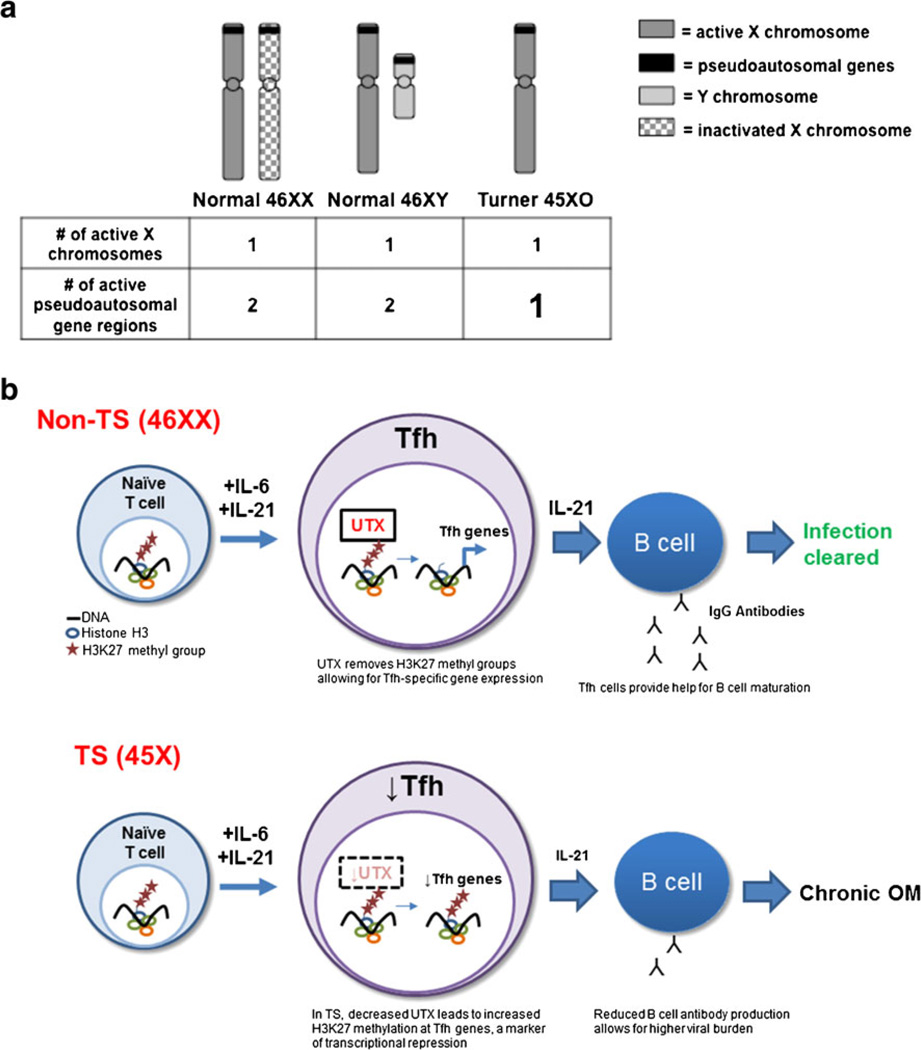Fig. 1.
a TS patients are haploinsufficient in pseudoautosomal genes including UTX. Because pseudoautosomal genes escape inactivation, they are expressed from two copies of the X chromosomes in 46XX females. They are also expressed on the Y chromosome, so they are expressed from two copies in 46XY males. In 45XO TS females, however, they are only expressed from one X chromosome, so they may be haploinsufficient in TS. b Model: UTX deficiency in TS patients predisposes to chronic viral infection due to impaired Tfh differentiation. In 46XX females haplosufficient for UTX, Tfh cells differentiate from naïve CD4+ T cells through UTX-specific H3K27 demethylase activity. H3K27 demethylation results in increased expression of Tfh-specific genes and adequate Tfh help for B cell maturation, anti-viral antibody production, and virus clearance. However, in TS patients and in UTX-deficient mice, UTX haploinsufficiency results in decreased circulating Tfh cells due to H3K27methylation and transcriptional suppression of Tfh-specific genes. Decreased Tfh cells in turn reduces B cell antibody production and prolongs chronic infection

